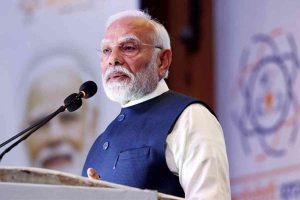In a landmark decision to accelerate India’s transition to a gas-based economy, the Petroleum and Natural Gas Regulatory Board (PNGRB) has approved the Second Amendment to the Natural Gas Pipeline Tariff Regulations, 2025, introducing sweeping reforms aimed at making natural gas more accessible, affordable, and investment-friendly.
The reforms, approved after wide-ranging stakeholder consultations, reflect PNGRB’s commitment to the vision of “One Nation, One Grid, One Tariff.” The changes are designed to simplify the gas market structure, promote cleaner fuels, and build a more inclusive energy infrastructure.
Key Highlights of the Reform Package:
- Unified Tariff Zones Reduced: The number of Unified Tariff Zones has been reduced from three to two, simplifying the national gas transportation framework and ensuring a more equitable pricing structure across regions.
- Tariff Relief for CNG and PNG: The Zone 1 Unified Zonal Tariff benefit has been extended nationwide to Compressed Natural Gas (CNG) and Piped Natural Gas (PNG) for domestic use, significantly reducing consumer costs in urban households and transport sectors.
- Mandatory Long-Term Gas Procurement: Pipeline operators are now required to source at least 75% of their system-use gas through minimum three-year contracts, enhancing price stability, lowering procurement risks, and ensuring long-term supply security.
- Creation of a Pipeline Development Reserve: PNGRB has introduced a performance-linked investment mechanism. Pipeline entities earning revenues above 75% capacity utilisation will allocate:
- 50% of net-of-tax earnings toward infrastructure expansion.
- The remaining 50% returned to consumers through tariff adjustments.
These measures aim to stabilise tariffs, attract fresh investments, and expand gas access to underserved regions while ensuring long-term affordability for consumers.
In its official statement, PNGRB reaffirmed its goal of creating a transparent, consumer-first, and business-friendly ecosystem for India’s natural gas sector. These reforms are expected to play a pivotal role in advancing the country’s clean energy goals, fostering economic growth, and ensuring energy equity.




